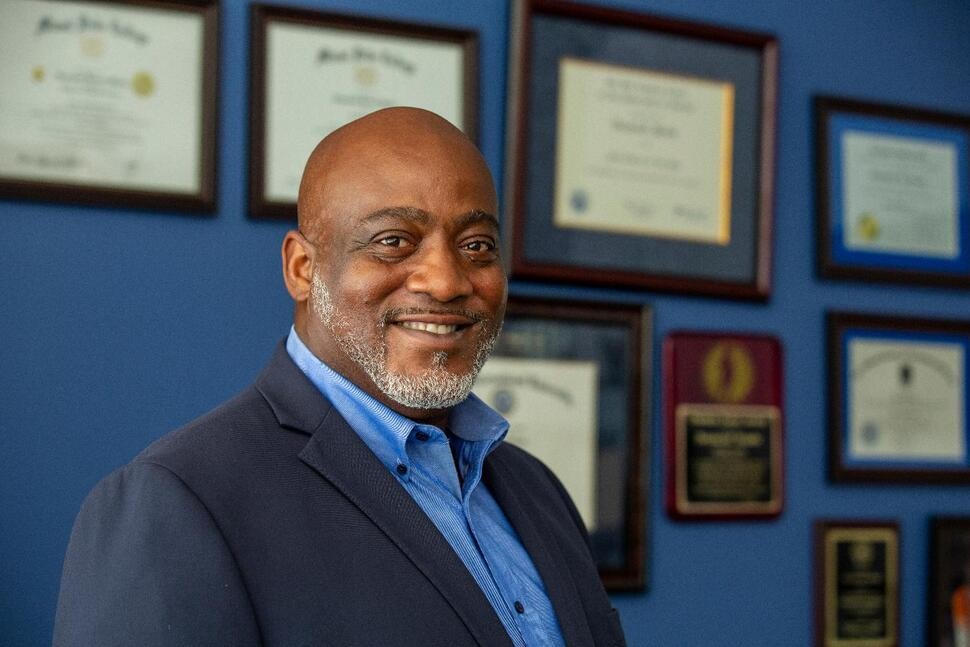
**Florida Faces Delays in Rolling Out Federally Funded EV Charging Stations at Wawa and Buc-ee’s Locations**
As electric vehicles (EVs) continue to rise in popularity and more drivers shift away from gasoline-powered cars, states across the U.S. are working to build the infrastructure necessary to support the transition. Florida, a state with one of the highest numbers of registered EVs, is facing scrutiny over delays in deploying federally funded electric vehicle charging stations. Despite having received millions in federal funding to establish these charging networks, the state’s efforts, particularly at popular locations like Wawa and Buc-ee’s, have been slower than anticipated. These delays have sparked concern among EV advocates, local officials, and residents who believe Florida is missing a crucial opportunity to build a more sustainable transportation network.
### Federal Funding for EV Infrastructure: A Missed Opportunity?
The federal government has prioritized expanding the nation’s EV infrastructure in response to increasing demand and climate change concerns. Through the Bipartisan Infrastructure Law passed in 2021, significant funding has been allocated to assist states in building and expanding EV charging networks. Florida, as part of this initiative, was granted access to millions of dollars, specifically earmarked for the development of charging stations at high-traffic locations. Wawa and Buc-ee’s, both well-known for their convenience store chains and travel stops, were among the businesses targeted for hosting these new charging stations.
The funds allocated for this project are part of a larger national effort to build a network of 500,000 EV charging stations by 2030. As EV adoption continues to rise, providing accessible, reliable charging infrastructure has become an urgent priority. This expansion is crucial for supporting the transition to electric vehicles and making long-distance EV travel viable. However, while other states have made notable progress in deploying federally funded EV charging infrastructure, Florida has been slow to meet its targets.
### Why the Delay?
Several factors contribute to the delays in Florida’s rollout of EV charging stations at Wawa, Buc-ee’s, and other high-traffic locations. Understanding these challenges sheds light on the broader issues surrounding the development of EV infrastructure in the state.
1. **Permitting and Regulatory Challenges**: Florida has faced bureaucratic hurdles in obtaining the necessary permits for these charging stations. As with any construction project, installing EV chargers requires compliance with local and state regulations, which can vary widely by jurisdiction. These regulations involve safety codes, environmental reviews, and utility connections, each of which can slow down the permitting process.
2. **Coordination with Utility Companies**: EV charging stations require significant electrical infrastructure, including high-voltage connections and transformers to handle the increased load. The coordination between charging station providers, utility companies, and the host locations, such as Wawa and Buc-ee’s, can be complex. Utility companies are responsible for upgrading power supplies at the designated locations, but these upgrades can take time and resources, particularly in areas with older infrastructure.
3. **Supply Chain Issues**: Like many other industries, the EV charging sector has not been immune to global supply chain disruptions. Delays in obtaining the necessary equipment, such as charging units, transformers, and other electrical components, have slowed down the rollout. The pandemic’s residual effects have created backlogs for essential components, affecting the timeline for station installations.
4. **Labor Shortages**: The labor market has also impacted the progress of EV charging station installations. As demand for skilled labor, such as electricians and construction workers, has surged across the U.S., Florida has struggled to secure the workforce needed for these projects. The shortage of available labor adds additional delays to the already lengthy permitting and coordination processes.
5. **Funding Allocation and Prioritization**: While federal funds have been allocated to Florida for EV charging infrastructure, there have been concerns about how the state is prioritizing the use of these funds. Critics argue that Florida’s current approach lacks urgency and strategic planning, focusing too much on initial planning phases and not enough on the rapid execution needed to meet demand. There is also speculation that political disagreements within the state government have affected decision-making processes around these funds.
### The Importance of EV Charging Infrastructure at Popular Locations
Convenience stores like Wawa and Buc-ee’s play a crucial role in the expansion of EV infrastructure. These establishments are strategically located along major highways and in high-traffic areas, making them ideal spots for EV charging stations. EV owners, particularly those on long road trips, need accessible charging points where they can charge quickly and conveniently.
Wawa and Buc-ee’s have been popular among gas-powered vehicle drivers for their convenience and range of amenities, and these attributes make them equally attractive to EV drivers. By installing charging stations at these locations, Florida could significantly enhance its charging network, attracting more EV tourists and facilitating road trips for in-state EV drivers.
In Florida, where tourism is a significant economic driver, the lack of robust EV infrastructure could have implications beyond local drivers. Many tourists now travel in EVs and plan their stops based on the availability of charging stations. Failing to provide sufficient charging options could discourage EV tourists from choosing Florida as a travel destination, impacting the state’s tourism industry. Furthermore, without a reliable charging infrastructure, Florida risks falling behind in the broader shift towards sustainable transportation, a shift that is being embraced by other states and countries.
### Environmental and Economic Impacts of Delayed EV Infrastructure
The slow rollout of EV charging stations at Wawa, Buc-ee’s, and other locations also has broader environmental and economic implications for Florida. The transportation sector is one of the largest contributors to greenhouse gas emissions, and increasing the use of EVs is seen as a crucial step in reducing these emissions. However, without accessible charging infrastructure, potential EV adopters may hesitate to make the switch from gas-powered vehicles, thus slowing progress towards environmental targets.
On an economic level, Florida risks missing out on the opportunities associated with being a leader in the EV revolution. Cities and states with strong EV infrastructure attract investment from tech companies, manufacturers, and green energy firms. The EV market is expected to grow rapidly in the coming years, and regions that position themselves as leaders in this space will reap economic benefits, including job creation and increased tax revenue. By delaying its EV infrastructure rollout, Florida is at risk of missing out on these advantages.
Additionally, delays in the deployment of EV charging stations could discourage auto manufacturers from prioritizing Florida in their expansion plans. As more companies, including traditional automakers and new entrants, invest in EV technology, they are increasingly looking for locations with strong support for EV infrastructure. If Florida lags behind, it could be overlooked by companies seeking states that are embracing EVs and the infrastructure needed to support them.
### The Way Forward: Potential Solutions and What’s Next
The delays in deploying EV charging stations at Wawa, Buc-ee’s, and other locations highlight the need for Florida to take a more proactive approach. There are several strategies that the state could implement to expedite the rollout and ensure that it meets both current demand and future needs.
1. **Streamlining the Permitting Process**: One potential solution is for Florida to work on streamlining its permitting process for EV infrastructure. Other states have created fast-track permitting processes specifically for EV charging stations, reducing delays and allowing projects to move forward more quickly. Florida could follow suit by introducing streamlined processes that prioritize EV infrastructure projects.
2. **Public-Private Partnerships**: By fostering public-private partnerships, Florida can collaborate with private companies, utility providers, and local governments to accelerate EV infrastructure development. Partnerships with charging station companies, in particular, could help to secure the necessary funding and technical expertise, allowing for a quicker and more coordinated approach.
3. **Incentives for Quick Implementation**: The state government could offer financial incentives or tax breaks to encourage businesses, such as Wawa and Buc-ee’s, to expedite the installation of charging stations. These incentives could cover the costs associated with electrical upgrades, permitting, and equipment, helping to remove some of the financial barriers to swift implementation.
4. **Addressing Labor and Supply Chain Issues**: Although some of these issues are beyond Florida’s immediate control, the state could offer training programs and incentives to attract more skilled workers to the EV infrastructure industry. Additionally, working with suppliers to secure long-term contracts may help to mitigate supply chain disruptions.
### Conclusion
The delays in Florida’s rollout of federally funded EV charging stations at popular locations like Wawa and Buc-ee’s are a missed opportunity for the state to lead in the shift towards a more sustainable future. By addressing regulatory challenges, building partnerships, and prioritizing these projects, Florida could accelerate its progress and set itself apart as a leader in the EV industry.
Florida’s transition to a more robust EV infrastructure is not only essential for the state’s economic growth but also critical in meeting environmental goals. As other states make strides in building out their EV networks, Florida faces mounting pressure to catch up. The time for action is now if Florida hopes to remain a relevant player in the nation’s evolving transportation landscape.





